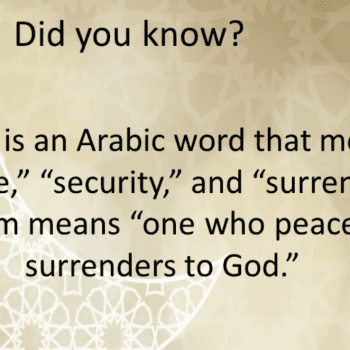 In our home I’m out numbered by males 7:1 excluding the dog. Its an overwhelming majority for anyone, let alone a feminist. Over these Christmas holidays I have ‘manufactured’ a discourse in order to mitigate for an explosion of noise from rambunctious lads. It goes like this (and needs to be delivered with all seriousness, at their level, and in hushed tones):
In our home I’m out numbered by males 7:1 excluding the dog. Its an overwhelming majority for anyone, let alone a feminist. Over these Christmas holidays I have ‘manufactured’ a discourse in order to mitigate for an explosion of noise from rambunctious lads. It goes like this (and needs to be delivered with all seriousness, at their level, and in hushed tones):
Mummy has girl ears (then I pull back my hair and dramatically display them), you have (pause for effect, and lift my chin to encourage their thinking)……. that’s right… BOY ears. Boy ears and girl ears are different. Boy ears can have lots of noise in them all at the same time. Girl ears can’t. The timpanic membrane in my girl ears (a handy youtube clip is good at this stage) makes the drum in my head beat a million billion times and if it beats too much my head will explode and you will all break your legs slipping over in my blood and brains. Do you want that to happen? (solemn shaking of the head). In boy ears you only hear one sound at a time, but my supersonic girl ears hear everything, all at the same time. Can you imagine what that is like? Shall I show you? (Now I scream the scream of the damned at the top of my voice – ensuring I’m wearing a Tena Lady – just in case). (Hushed tones again) Now that wasn’t very nice was it? That’s what its like for me when all of you boys make loud noises at the same time except for me its a million billion times worse. Now run along and play quietly because you don’t want my brains and blood dripping all over the walls and the floor do you?
I kind of think there might be a kernel of truth in the way that women and men hear differently but for me this spurious science is intended for an effect. I put it to work with a particular end in mind. With only one week left of the holidays it seems to have been quite useful – at least in the short term. I’m not entirely sure about the ongoing psychological problems it might create but some of our KiwiSaver investments might be able to partially cover their therapy at a later date.
And this brings me to the theme of my musings today; language and the ‘construction’ of our lived Mormon reality. Its going to be a bit academic but if you can yawn your way through I promise to end on a nice note.
For now, lets think of language as more than just noises, mouths and words. Lets think of language as a system which works to construct material reality. There are those who might argue that real is real and if its there why does it need to be constructed? Let me demonstrate. If a mobile phone had no name, or words associated with it, would it exist? Sure it would, at least on some level. It would be there, we might be able to see it and touch it, but its material reality isn’t going to be bought into sharp focus until we name it and give it a context and some meaning or its own story:
eg. “This is a cell phone, it recieves data through electronic signals which transmits information from one device to another”.
There we have a story and suddenly the cell phone is transformed from an inanimate object taking up space to something with meaning and purpose – our language bought it into being, we storied it and integrated it into our world through discourse. We could have storied the cell phone in quite another way altogether. I could have said:
“this is a cell phone – its an evil device full of demons and should you touch it your soul will be for ever locked in the fiery pits of eternal damnation”.
The cell phone would then, without so much as doing the marimba, take on another meaning and come to represent something quite ‘Other’.
All social groups construct a specialist language to manage our relationships, our behaviours, and our motivations in space and across time. And we Mormons are no different in that respect from a group of IT geeks pouring over the technical specs of the latest iphone. We have our own language system for bringing the abstract into being. A cell phone is one thing to language and story, but what about religious and moral notions? They too get constructed in language, are given meaning and relevance. There is no duplicity in this. Although it might sound mundane and heartless, it just seems to be the way we function as humans.
Our Mormon language system also demonstrates a preference for a particular kind of message. Embedded in the way we talk are dominant themes and points which we tend to make over and over again. Testimony meeting is a really important place where our preferences for a particular kind of message is are expressed and reproduced. These are more than affirmations of our belief but they also function as important markers of identity. In these mantras (see McLemore, 2006 for a wonderful discussion about ‘Mormon Mantras’) we are effectively saying; ‘I belong’, ‘I’m like you’, ‘I’m safe and reliable’, ‘I’m all in. Those of us who have been around the block will recognise the default format for testimony meetings which aren’t prescriptive. Nobody sits down with us and says, ‘This is what you have to say” (or at least they shouldn’t). Nevertheless these mantras are remarkable for their similarity and repetition across different Mormon contexts across the world and over time. Mormons will recognise our Mantras as going something like this:
- I know the church is true
- I know the Book of Mormon is the word of God
- I know that Joseph Smith was a prophet of God
- I know that TSM is a prophet of God
- I know that Jesus Christ stands at the head of this church
- This month I bumped into an old friend…………..(then we get a story)
- I’m grateful for……….
These mantras tend to function at a number of interconnecting levels:
- Their use signifies our identity and belonging in the community.
- They construct a pseudo theology which is drawn from our anecdotes and stories (ie. I know that tithing is important because…..)
- They work to construct hierarchies of power
- They work to make sense out of our relationships with each other
We can refer to these functions in order to analyse the ‘work’ of our mantras and tropes. For instance if we analyse the first mantra we will notice these functions at work:
- I know the Church is true: 1) This trope indicates our approval for, loyalty and affirmation of the church. 2) It tells its own story about the speaker’s assumed journey from ignorance to knowing within the context of our faith tradition. 3) It also has the effect of disavowing other faith traditions by positioning The Church as the only one that is authentic and sanctioned. 4) The work it performs is to bring the speaker into accord with the institution and signals to the audience a willingness to be counted ‘in’.
In and of itself this trope is contestable. Knowledge indicates an incontrovertible and uncontested understanding. We have had enough people vow from the pulpit that they know, and then the next moment deny. Knowing can’t be undermined by denial. If you know, you know. I know that 2+2=4 and should I decide tomorrow that I despise the number 2 because its use has damaged me, I couldn’t in a right minded state deny the fact of the equation.
The other problem is in the idea that a church could be ‘true’. When Ashley Roper was our District President he would bluster from the podium, “How could a church be true?” He thought this is frivolous and he should have known – he was a geophysicist. Is it that the church is there and you can see it at 25 Fendalton Road? Or are we affirming that there are people (the church) at fast and testimony meeting and you aren’t imagining that child crying in pew behind you? You see, its deeply problematic. However, if we work with the notion that true means to be ‘cherished’, ‘faithful’, ‘loyal’ then saying it is true takes on quite a different meaning which is actually quite lovely and expresses a kind of bliss.
The problem we have in Mormonism is in our use of jargon, tropes, aphorism, discourses and rhetoric which can be used rather thoughtlessly because, I would argue, our intention is not necessarily to make a statement of faith but rather our dominant discourses are those which signal our belonging to the community. The effect of this cyclic language of community affirmation is that it doesn’t propel us far from the centre where the repetition of these tropes corrals us together at a place of nauseating sameness and conformity. The language is so bounded and oft repeated that the community experiences alarm when someone re-languages these tropes and constructs new places of significance in her spiritual journey. The question is: “Can Mormonism tolerate unique ways of languaging our spiritual encounters and desires?” From my experience we don’t do it particularly well and I wish we would.
Lets analyse another trope I’ve heard more recently and think carefully about the kind of social work it is performing:
- I love this gospel and I’m so grateful I’m a member of it: Once again this is an ‘affirmation of community’ using familiar linguistic markers in Mormonism. But its riddled with silliness. Firstly, what does the speaker mean by ‘this gospel’? Is there more than one gospel? Are they referring to the synoptic gospels and prefer Matthew over Mark perhaps? And how can you be a member of a gospel? If I could be really crude we aren’t even legal members of the Church of Jesus Christ of Latter-day Saints let alone members of a gospel. Our details are held by the Church’s subsidiary ‘Intellectual Reserve’. But we aren’t theoretically ‘members’ of anything except that we participate in and adhere to the community practices which are facilitated by the Corporation of the President through its ecclesiastical and bureaucratic arms. At one level it works to signify our affiliation. At another level its a nonsense.
We could go on and pull apart some of our more familiar tropes; I know with every fibre of my being, I know without a shadow of a doubt, I feel impressed to tell you, he’s a non-member, This is the Lord’s church…..
While on some level the expression of a particularised way of speaking is inevitable in a community. Every group has its own ‘in’ language. The argument I am making is that we need to be conscious of this so that we won’t be the only people in the universe who understands us. I wish we felt free to play around with our taken for granted notions and rework them into narratives that are beautiful and relevant rather than just markers of our ‘churchedness’. Language is an astounding gift which can give us access to the the liminal, mystic, beautiful, sublime, and the lovely.
Christ’s gift to the world was a newness and freshness in his utterances, that changed the world. Every word he spoke dripped with an intention to change us and move us forward from ordinariness to wholeness. Rather than deploy our words to mark out a religious territory, perhaps our words need to veer out from the centre a bit more and tell our own stories of transformation in ways that engage the divine rather than please the institution.











